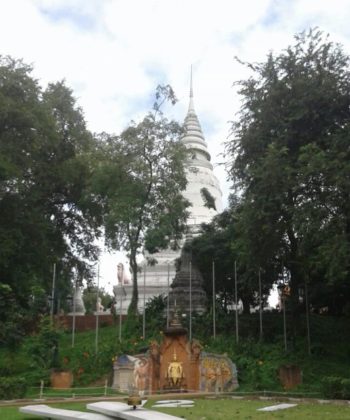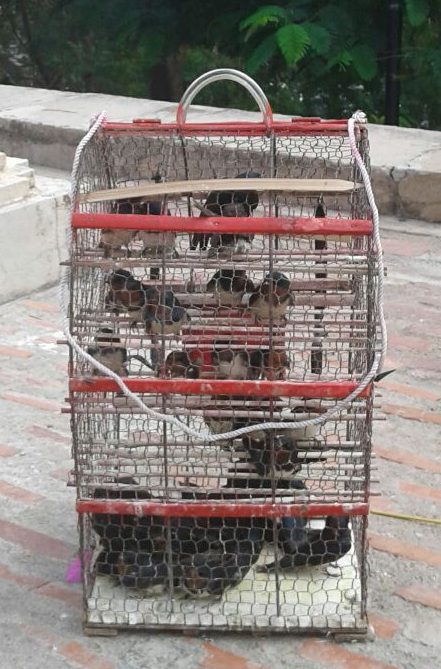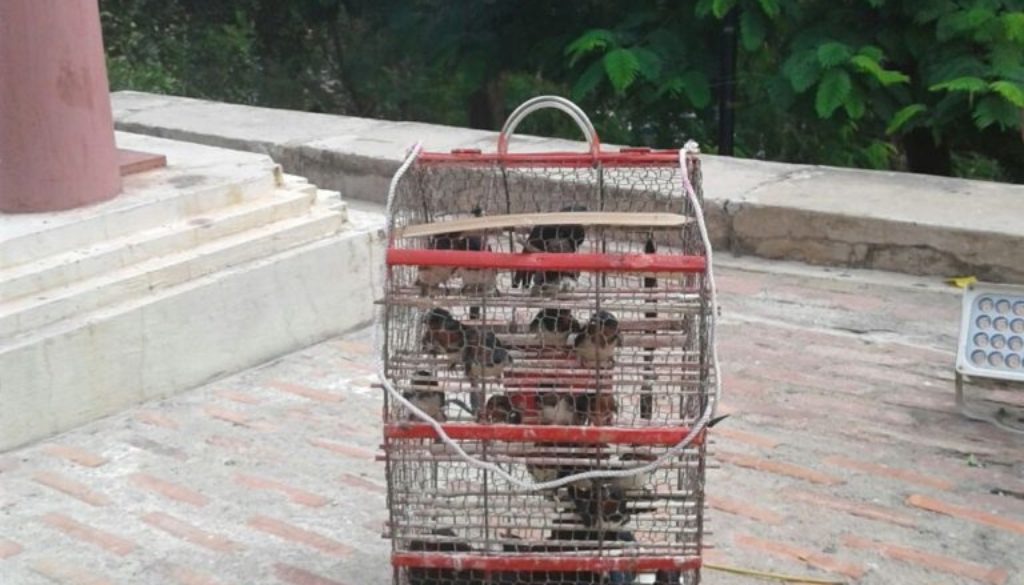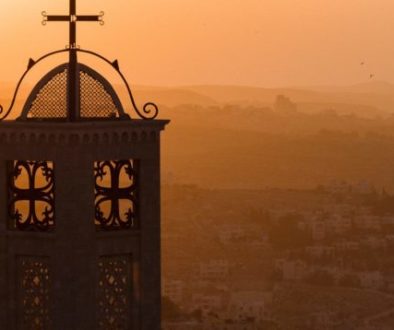resto cambo reflections #1: Birds at the Altar
Phnom Penh, the capital of Cambodia, is named for its 600-year-old central pagoda, Wat Phnom (literally “Hill Pagoda”). We visited Wat Phnom on our second day in Cambodia. In addition to being a place of devotion and prayer, its grounds are also used for sex trafficking, sometimes in broad daylight. We silently prayed for each person we saw, especially those who appeared vulnerable to exploitation, as we walked the gently sloping hill of the temple grounds.

When we reached the top of the hill where the main pagoda sits, the air was filled with burning incense, ringing bells, and gold banners waving in the breeze. Eight-tiered spires ascended to a single point in the sky, architectural representations of Buddhism’s eight-fold path to nothingness. Below those spires were small cages crammed with sparrows and swallows, waiting to be sold to temple-goers. These birds are part of an ancient Buddhist practice of freeing caged animals as an act of kindness, thus generating good karma. Though the practice originated in an attempt to protect and rescue vulnerable animals (e.g., chickens destined for the chopping block), it has evolved over the centuries. Now, the animals freed are rarely vulnerable and in need of protection; rather, the very act of capturing and caging them suppresses their immune systems and makes their survival nearly impossible. And the release of the birds, rather than simply a karmic good deed, has become a form of prayer to have one’s wishes satisfied. As the bird is released, so are the person’s hopes for, say, a good grade on an upcoming test; the strength to overcome addictions; a negative cancer scan; a “yes” to a marriage proposal.
 As I watched these birds released, I noticed how most of them simply circled the wat a few times before landing, only to be captured, caged, and released again. And I found myself thinking that this bird-release practice isn’t so different from what we do at church each week. We capture up our longings and release them to God – through words, through prayer, and through the Eucharist. We use something we can touch and see – bread and wine – to express our faith in a vast unseen mystery. And we do it again and again, capturing and releasing our hopes to God, week in and week out. I was struck by how very human we all are, Cambodians and Arlingtonians alike: longing for our prayers to be heard; longing to encounter the divine; and using the earthy, tangible stuff all around us to express these longings.
As I watched these birds released, I noticed how most of them simply circled the wat a few times before landing, only to be captured, caged, and released again. And I found myself thinking that this bird-release practice isn’t so different from what we do at church each week. We capture up our longings and release them to God – through words, through prayer, and through the Eucharist. We use something we can touch and see – bread and wine – to express our faith in a vast unseen mystery. And we do it again and again, capturing and releasing our hopes to God, week in and week out. I was struck by how very human we all are, Cambodians and Arlingtonians alike: longing for our prayers to be heard; longing to encounter the divine; and using the earthy, tangible stuff all around us to express these longings.
But as I reflected further, I realized that the differences outweigh the similarities. Though it may feel like the Christian life is an endless repetition of capture-and-release to God, it isn’t. God is not far off in the sky, waiting for our birds to come his way. He is with us and in us. Our confessions and longings do not circle the sky and return to us empty; they are received by “him who is able to do far more abundantly than all that we ask or think.” Though we share with Buddhists a penchant for tangible symbols (as all humans do), our symbols of bread and wine represent the body and blood of a resurrected person, a real event in human history, an act of once-and-for-all sacrificial love that demonstrate that God indeed is with us, loves us, hears us, and knows us.
A week after we visited Wat Phnom, we supported a silent retreat for Christian workers in Phnom Penh. This retreat was designed as a time of refreshment for people who pour themselves out in service to others in places of profound darkness and suffering. At the end of our time, one of the retreatants shared a scripture that had proved meaningful to her over the weekend. It, too, involved sparrows and swallows – the same birds used in the temple releases – but evokes a secure relationship with a loving God rather than futile repetition and empty hope:
“Even the sparrow finds a home, and the swallow a nest for herself, where she may lay her young, at your altars, O LORD of hosts, my King and my God.” Psalm 84:3
We do not release our prayers to God as acts of wishful thinking. Instead, we are invited to take up residence in the safety of his altar.
-Amy


January 30, 2017 @ 10:49 pm
Amen.